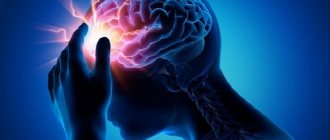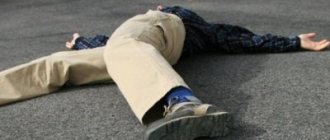Alcoholic epilepsy often occurs against the background of systematic consumption of strong alcoholic beverages. This form of psychosis may be accompanied by seizures. Moreover, for further seizures it is not necessary to take a large dose of alcohol. This fact is explained by the fact that severe alcohol intoxication is not needed to exacerbate pathological processes in the patient’s brain. That is, the disease becomes chronic.
Epilepsy from alcohol is nothing more than a disease of the nervous system, as a result of which the patient is periodically subjected to seizures. According to statistics, about 5% of adults who abuse ethanol substitutes for a long time, which “burn” the brain, suffer from this disease.
Constant consumption of strong alcoholic drinks and even wine will sooner or later cause negative consequences in the body. For example, a person will develop mental disorders and vital organs will fail.
Epilepsy develops regardless of gender: both women and men who suffer from alcoholism for more than 5 years and constantly treat hangover syndrome with the same potion become its victims.
Main factors and diagnosis of falling sickness
Long-term alcohol intoxication is one of the main causes of the disease. It can also develop:
- against the background of atherosclerosis;
- previously received traumatic brain injuries and mechanical injuries to the head;
- past infectious diseases;
- due to gene mutation (cryptogenic).
Epilepsy can also be transmitted through bad inheritance (genuine form of acquired epilepsy). The form of the disease is influenced not only by genes, but also by such life factors as environmental conditions and psychotype.
The basis of seizures is the abnormally high electrical activity of nerve cells in the brain, the discharge of which causes an attack. Many epileptics, who have learned to control this feature of their body, continue to live fully and work, and some find themselves unable to work and receive disability.
The first epileptic seizure is always unexpected. But over time, it can repeat itself (and believe me, it will repeat itself over and over again, more and more often), so you shouldn’t expect a miracle to happen. On the contrary, the disease will progress. Therefore, if you have one of the following symptoms, it is worth visiting a specialized specialist for help. He will examine the patient, prescribe medication, talk about prognosis and proper treatment of seizures at home.
MRI (magnetic resonance imaging allows you to study the structure of the brain) and EEG (electroencephalographic monitoring is prescribed to study brain functions) helps to identify the symptoms of the disease.
Excessive electrical impulses cause neighboring regions of the brain to stop working and a seizure develops. It is EEG recordings that make it possible to diagnose in which area of the brain impulses occur. The patient wears a strap on his chest and a special cap on his head, connected to an electrode system that records biometric brain activity. The information is read, entered into the encephalograph-amplifier, displayed on the monitor and analyzed by the doctor.
Epilepsy is a complex disease that is at the intersection of two specialties: neurology and psychiatry. Modern doctors are quite capable of curing a patient. Those days when the sick were evicted outside the city, considered lepers and forbidden to marry with them, are long gone. Do not be afraid to contact specialists with your problem.
general information
Epilepsy in alcoholics is considered a secondary form of the disease, since the pathology occurs due to changes in the brain due to the consumption of alcoholic beverages. There are isolated cases where epileptic seizures occurred in people after a single drink of alcohol. Clinical manifestations include convulsive and non-convulsive seizures of varying severity.
The highest incidence is observed in men in adulthood - from 25 to 45 years. An important feature of the disease is the occurrence of seizures after alcohol, which allows for differential diagnosis with other secondary types of epilepsy. In addition, frequent non-convulsive manifestations and the absence of epileptogenic foci in the brain during electroencephalography are characteristic.
Alarming symptoms of disease without age
Alcoholic epilepsy includes specific symptoms before an attack:
- bitterness;
- touchiness;
- headache;
- increased irritability;
- manifestation of aggression;
- excessive pickiness;
- lack of appetite;
- decreased attention;
- incoherent speech;
- sleep and behavior disorders.
That is, the epileptoid form of the psyche manifests itself in serious cognitive impairment: viscosity (boring description of details) and affect (unreasonable attacks of anger, endless scandalousness) are the main manifestations of personality changes.
The above factors may accompany the patient a day or two before a major convulsive seizure, after which the alcoholic will feel overwhelmed, drowsy, and weak. However, he will not remember the attack itself.
Symptomatic epilepsy may be:
- frontal (cognitive disorders, speech problems);
- occipital (accompanied by vision problems);
- temporal (hearing, logic of thinking, and personal behavior are impaired);
- parietal (coordination of movements is impaired);
- The ICD (International Classification of Diseases) also distinguishes the multifocal form.
In a normal state, the entire brain is equally active and has no foci of increased excitation. If excessive neural discharges occur in one of the sectors, which spread to other parts of the brain, then the person begins a generalized seizure with contracting muscles of the face, arms, legs, torso, arching parts of the body and screams. Due to hypoxia, the skin becomes bluish.
Do not be afraid of the sounds that a person makes during a seizure. This happens involuntarily. Screaming is a normal but strong contraction of muscles with the expulsion of air.
Alcoholic epilepsy itself includes symptoms:
- muscle cramps resulting from excessive electrical activity of the cerebral hemispheres - the patient’s body arches and twitches unnaturally;
- blue lips;
- hoarse breathing;
- chest spasm, which provokes a strong cry;
- pale skin;
- spasm of the lower jaw, due to which an epileptic may bite his tongue;
- loss of consciousness and other epileptiform syndromes.
The main danger of epileptic seizures is that they can lead to death:
- Spontaneous tilting of the head back, causing the tongue to be thrown back, is often accompanied by blockage of breathing.
- Frequent excessive excitation, covering the sensitive cortex of the cerebral hemispheres during a seizure, overloads neurons, their irreversible changes occur, and they die. Therefore, if an attack lasts more than 30 minutes, you should immediately seek treatment. Epistatus requires resuscitation measures.
- An epileptic seizure can lead to cardiac arrest.
It is noteworthy that after seizures, alcoholics see realistic hallucinations; have emotional dreams, wake up early, or generally suffer from insomnia. This indicates post-alcohol withdrawal syndrome. Withdrawal symptoms are mistakenly perceived as paranoid schizophrenia.
Emergency care for an epileptic seizure
Long-term alcohol consumption leads a person not only to mental degradation, but also to the formation of chronic epilepsy. Even a short-term seizure is dangerous for the health and life of the patient, because by falling, a person can receive serious injuries. If the first characteristic signs of seizures are noticed, and there is no doctor nearby, then it is important to prevent the patient from falling. First aid instructions for a patient suffering from alcoholic epilepsy:
- lay the patient on a soft surface so that if he falls, he will avoid injuries and bruises;
- remove dangerous objects that can cause injury away from him;
- position the head on the side so that the patient avoids choking on vomit and saliva or tongue sticking;
- after the seizure ends, the person needs rest or sleep;
- if the attack lasts no more than 5 minutes, then additional medical measures are not required;
- in case of a prolonged seizure that takes more than 5 minutes, the patient needs resuscitation - call an ambulance.
Help with absence seizures
When alcoholics experience temporary clouding of consciousness, it is an absence seizure. During this condition, the patient utters words and performs unmotivated actions, followed by partial or complete amnesia. Such attacks are characterized by clouding of consciousness with freezing of speech and movements. Often absence seizures are so short-lived that they go unnoticed. No special help is required for this condition. It is recommended to monitor the patient if consciousness is impaired.
What to do during a psychomotor seizure
Epilepsy after alcohol can be expressed as a psychomotor seizure. It is characterized by the automatic movements of an alcoholic with incomplete awareness of actions. This manifestation of alcoholic epilepsy is common. The seizure is accompanied by unclear sensations, distortion of perception, and fear. Post-attack amnesia often develops. During a psychomotor seizure, monitoring the patient is recommended to prevent injury.
Main types of seizures
Doctors have identified three types of seizures:
- The classic symptom of the disease is a large (generalized) attack, which has the most severe consequences. At a certain moment, a focus of pathological activity appears in the depths of one of the sectors of the brain, and the reaction covers the cerebral cortex. The attack is accompanied by a sharp muscle spasm, the appearance of convulsions, foam at the mouth and loss of consciousness.
- Local (partial) attack. It is characterized by subtle convulsions in one of the parts of the body (for example, the arm and head can involuntarily turn in the same direction somewhere to the side).
- Absence (minor seizure). The person freezes, withdraws into himself (consciousness is focused on one point), since a focus of pathological activity appears in his brain, loses consciousness for 5-20 seconds, does not react to external stimuli, but no convulsions are observed.
As you can see, epilepsy has two extreme manifestations: an epileptic seizure, when a person falls and convulses, and a completely different side of this disease, when the patient freezes for a split second, after which he “returns” to reality and continues to do ordinary things, no matter what. what never happened.
Symptoms
Alcoholic epilepsy is inherited, and the patient's child may suffer from seizures when the body temperature rises or stressful situations occur. It is believed that even in the case of a one-time epileptic seizure in at least one of the parents, provoked by alcoholic drinks, the probability of a seizure in children is approximately 5%.
Symptoms of alcoholic epilepsy appear shortly before the attack and look like this:
- fragmentation of consciousness and confusion of speech;
- touchiness, increased irritability;
- sudden mood swings;
- the appearance of a pronounced “burning” pain syndrome;
- lack of appetite, nausea;
- pallor of the skin of the face;
- feeling “broken”, lethargy;
- the occurrence of auditory and visual hallucinations.
The likelihood of a seizure is much higher against the background of chronic fatigue, lack of sleep, decline in immunity and elevated body temperature
An epileptic attack is dangerous because the patient can literally fall off his feet, resulting in serious injuries to the head or limbs. During a seizure, the tongue often curls inward, thereby leading to suffocation.
In order to prevent asphyxia, it is necessary to press on both sides of the lower jaw, and then use your fingers to fix the tongue in a safe position. There is also an increased risk of cardiac arrest. After the seizure has passed, patients usually do not remember anything, which is explained by retrograde amnesia. They simply feel a lack of strength and fall asleep soundly.
If someone suddenly feels ill
If a person has an attack, do not be alarmed, act clearly and calmly. What to do in this case?
- There is no need to show indifference and bypass a person, because he needs help.
- Do not prevent the patient from falling to the ground or floor. Prevention will not end in success - tonically strong muscle contractions will not yield even to a strong man.
- Grab the drunk patient under the armpits and lay him as gently as possible on his back.
- Promptly remove sharp and hard objects located nearby.
- Place something soft under your head (a jacket, a bag, you can use your own knees) and secure it tightly.
- Undo the hooks and buttons on your clothing. If you have glasses, you should take them off. Loosen the knots on your tie, straps, and lacing.
- Remember to look at the time and note how long the cramps last. They should stop on their own after 3 minutes. Otherwise, you should call (and call immediately!) an ambulance.
- If vomiting, foam, or saliva occurs, you need to turn the patient's body on its side. This will help prevent vomit from entering the respiratory tract.
- Allow the person to come to his senses and observe him for 20-30 minutes.
- After calling an ambulance, tell the doctors in detail about what happened and supervise the patient’s hospitalization.
Under no circumstances should you lift or stand the patient, or try to force open his mouth with metal or hard objects (a well-known method that does not give any effect). The tonic spasm of the masticatory muscles is enormous, so you can break the patient’s teeth or injure the oral cavity.
What actions should be taken in case of alcoholic epilepsy
Epilepsy in alcoholism usually proceeds according to the following algorithm: first, the patient experiences sensory, visual or auditory hallucinations, after which the person loses coordination and falls to the floor, emitting a special cry that occurs due to the fact that the muscles of the sternum sharply contract. If you observe such symptoms, you should:
- Try to prevent the person from falling as they could be seriously injured.
- You should not block your limbs during convulsions, because such actions lead to bruises and other injuries.
- The person needs to be helped to take the most comfortable lying position by placing a jacket folded several times or another soft object like a pillow at the head of the bed.
- It is strongly recommended to relieve the victim of constricting items of clothing by unfastening the zipper or buttons.
Providing timely assistance can save the patient’s life
During a seizure, the patient's head should be turned to the side, which will prevent the risk of the epileptic choking on foam or vomit. Attempts to open the jaws using your hands will not bring positive results, and for such tasks it is preferable to use, for example, a wooden or metal ruler, previously wrapped in a layer of gauze or a sterile bandage.
When the peak of the attack has successfully passed, the patient should be given rest, allowing him to get a good night's sleep. If the seizure lasts more than a few minutes, you should immediately call an ambulance.
Epilepsy is curable
Alcoholic epilepsy involves treatment, the goal of which is to reduce the number of seizures to a minimum. Their prevention is accompanied by:
- Maintaining an alcohol-free lifestyle.
- Regular intake of medications selected individually. The patient must be mentally prepared for long-term and constant treatment day after day.
- Compliance with routine aspects (healthy sleep and rest).
- In some cases, surgical intervention is required. After a detailed diagnosis, the area producing the attack is isolated and excised neurosurgically: the skull is opened, electrodes are placed on the brain that accurately read the focus, and this area is removed pointwise.
For prevention, the patient is advised to spend more time in the fresh air, to avoid old groups of drinking buddies, who are always ready to treat them to free drinks and arrange for further drunkenness.
As an aid, you can resort to traditional medicine recipes. All kinds of decoctions of soothing herbs have a beneficial effect on the nervous system, soften irritability, and normalize sleep.
Patients will also need the help of qualified psychologists. Only adequate therapy will help prevent severe disease.
Anticonvulsants, medications that have a broad spectrum of action, can help reduce the number of seizures. Such drugs stabilize the functioning of brain cells, increase the resistance of membranes to voltage changes, and eliminate peak excitation. Thanks to medications, the influence of excess impulses on the body stops.
Danger
A clear trend can be seen in patients who drink alcohol-containing drinks for a long time and in large doses. However, at the peak of libation, paroxysms do not occur so often. Most often, convulsions occur with rapid cessation of use.
Depending on how much the brain cells have been destroyed and which areas are no longer able to perform their functions, one-time seizures may occur, which probably will not recur, provided that there is an absolute abstinence from alcohol. However, this incident does not leave its mark on the body and without special help it can have quite serious consequences.
It is impossible to talk about the safety of such outbreaks. There are high cases of deaths from suffocation due to tongue retraction, impacts on sharp objects, the onset of convulsions while driving, or working with dangerous objects. One of the terrible consequences is cerebral edema. The survival rate of people in such cases, even with prompt resuscitation care, is not high.
We should not forget that in the future this episode may cause unprovoked attacks that will occur even with complete liberation from alcohol.
Telephone consultation Individual discounts and bonuses for treatment Call a doctor
The ketogenic diet is one of the steps to recovery
Epilepsy, which develops against the background of alcoholism, fundamentally destroys the human body and disrupts the functioning of all organs and systems. The diseases that arise from it are rarely treatable and, as a result, lead to death.
Particular attention should be paid to following a special ketogenic diet with a large amount of protein and a minimum amount of carbohydrates, which are the trigger for an attack.
An epileptic seizure is caused by foods such as sugar, fruits, honey, cereals, baked goods, and potatoes. They contain carbohydrates and activate the pathological focus of excitation.
The basis of the diet should be eggs, fatty meat (pork or lamb), cheese, butter, milk, cream, avocado and nuts.
The patient can safely cook scrambled eggs with bacon or scrambled eggs consisting only of yolks, and wash it all down with a glass of cream. He can eat meat with avocado, bake meat with cheese, eat pork ribs fried in oil, and stew squid in cream.
Thanks to the biochemistry of the body with its special breakdown of proteins and fats into ketone bodies, it is possible to suppress the pathological activity of the brain.
Principles of treatment
If even single epileptic seizures occur, you should immediately contact a medical facility. Specialists will conduct the necessary examination and be able to identify the cause of the symptoms. Patients and their relatives are often interested in whether alcoholic epilepsy can be treated? Narcologists and neurologists note that the development of the disease can be controlled. To do this, you should stop drinking alcohol and follow your doctor’s prescriptions regarding medications and psychotherapy.
Medication approach
The selection of anticonvulsants for alcoholic epilepsy, as well as other groups of medications, is carried out only by the attending physician. With self-medication, the progression of the pathology and the development of its complications are possible. The most commonly used types of medications are:
- Carbamazepine – prevents the development of convulsive seizures and motor automatisms. It also has a normothimic effect, reducing anxiety and eliminating manifestations of emotional lability.
- In addition to Carbamazepine, Phenobarbital, Gabapentin, Clonazepam and other analogues can be used to eliminate seizures. You should not use several medications at the same time, as this increases the risk of side effects.
- In the presence of depression associated with epilepsy and personality changes due to alcoholism, it is possible to prescribe antidepressants - Amitriptyline tablets, Fluoxetine, etc.
- To stabilize mood and eliminate anxiety, mood stabilizers are used - drugs based on lithium salts. A positive effect is observed with long-term use of medications - from 3 months or more.
- Improved cognitive functions and a decrease in the toxic effect of alcohol metabolites on the brain are observed with the use of nootropic drugs (Glycine, Piracetam) and antioxidants (Dihydroquercetin, Tocopherol, etc.).
Intensive therapy
If a patient develops status epilepticus or multiple seizures, he is hospitalized in the intensive care unit for emergency medical care. Therapy is carried out using intravenous administration of Hexobarbital, sodium thiopental, as well as solutions of colloids (Reopoliglucin) and crystalloids (Disol, isotonic sodium chloride solution). The drugs allow you to block epileptic excitation of the brain and stabilize the functioning of internal organs.
After relief of status epilepticus, the patient is transferred to the neurological department, where treatment is continued. The main groups of medications are anticonvulsants.
Successful therapy is possible only with complete abstinence from drinking alcohol. A narcologist selects appropriate methods to combat addiction. Individual and group psychotherapy, medicinal and non-medicinal coding methods, as well as hypnosuggestive techniques are shown. All patients require long-term rehabilitation treatment, which is aimed at preventing the return of alcohol dependence.
Should be avoided
Alcohol should not be consumed if you have epilepsy; seizures occur due to its sudden withdrawal after a long binge. After all, as practice shows, a person suffering from such an illness will not be able to drink a little and stop. Light intoxication will lead to loss of control over oneself and will result in negative consequences. In addition, anticonvulsants prescribed by a doctor are incompatible with alcohol.
Epilepsy and alcohol are an almost fatal combination. And if your loved one suffers from this illness, do not follow his lead when he asks you for alcohol. Easy breastfeeding can end in disaster.
Do not succumb to the provocations of “just take a sip,” “today is a holiday.” Cultivate unscrupulousness, categoricalness and develop the habit of refusing requests.
Explain that drinking does not solve the problem, and, of course, get rid of all alcohol in the house. Only this attitude will help the patient and you cope with the disaster and move on with your life.
A person undergoing treatment for epilepsy is contraindicated to drink coffee: caffeine suppresses the effect of antiepileptic drugs and can provoke a seizure. The same applies to nicotine addiction: smoking often aggravates the course of the disease and does not allow full treatment with anticonvulsants.
The patient needs to avoid stress and reduce physical activity (hyperventilation provokes attacks). Such a diagnosis and strong emotional upheavals and psychological outbursts have poor compatibility. For some people, prolonged exposure to direct sun or a dark room is contraindicated.
In case of timely and systematic treatment, epilepsy has a stable remission, that is, seizures do not recur for a long time. In any case, be attentive and loyal to the patient, then it will be easier for him to cope with the disease.
Prognosis and consequences of the disease
The prognosis for the patient depends on how timely therapy was started and whether the person stopped drinking. With complete abstinence from alcohol, seizures will gradually disappear. As medical practice shows, approximately 25% of patients experience a slight decrease in mental abilities. If therapy was started too late, the consequences may be as follows:
- memory impairment;
- causeless aggression;
- blurred vision;
- development of acute pancreatitis;
- heart failure, hypertension;
- liver pathologies;
- hypoxia.
Since a person cannot breathe fully during a seizure, the risk of death due to suffocation cannot be ruled out.
First aid
Seizures tend to begin unexpectedly even for the patient himself. True, there are some signs that signal this:
- visual disturbances;
- hallucinations;
- increased appetite;
- strong thirst;
- muscle pain;
- mood swings;
- convulsions;
- a feeling of tightness in the muscles;
- burning in the limbs;
- chilliness or, conversely, heat throughout the body.
On this topic
- Epilepsy
Everything you need to know about epilepsy in adults
- Natalia Sergeevna Pershina
- March 26, 2020
After all this, the patient screams, falls and loses consciousness. The cry occurs due to spasm in the larynx and contraction of the pectoral muscles.
In this case, first aid must be provided:
- Place the patient on a soft, safe surface; this will prevent injury during an attack.
- Remove all dangerous objects.
- Unbutton your shirt and belt.
- to open clenched teeth with a hard object rather than with your hands.
- Do not interfere with the patient's convulsive movements.
- It is best to turn to the side to prevent your tongue from sinking and hitting the surface. This will also help prevent you from choking on vomit and saliva.
- When vomiting, also lay on its side.
- The seizure goes away on its own within a few minutes, after which the patient must be put to sleep.
If the attack does not last more than five minutes, then medical help is not needed. If the seizures occur in succession and the duration increases, then it is worth calling an ambulance, since the patient requires resuscitation.
Forecast
No one can predict an accurate prognosis in this case, since everything depends only on the patient himself. If the patient can give up alcohol, then all the signs of the disease will go away and the person will be able to live a full life.
On this topic
- Epilepsy
5 facts about epilepsy after head injury
- Natalia Sergeevna Pershina
- March 26, 2020
If alcohol intake does not stop, the patient’s personality will be destroyed and over time this will lead to complete degradation with physical and psychological diseases. The disease can be fatal. In most cases, alcoholic epilepsy provokes the appearance of:
- pancreatitis;
- cirrhosis;
- dementia;
- gastritis;
- hepatitis A;
- enterocolitis;
- problems with sexual function;
- speech and visual impairments.
That is, if you are constantly drunk, you should not expect a positive prognosis.
Attack for the first time
The first attack of alcoholic epilepsy becomes a conduit to a long course of the disease. In this regard, the first seizure occurs during alcohol intoxication. Subsequent seizures are not excluded in a sober state. The main distinguishing feature of the first attack can be called throwing the head back.
On this topic
- Epilepsy
7 types of operations to get rid of epilepsy
- Natalia Sergeevna Pershina
- March 26, 2020
After the first convulsive manifestations of the disease, a person must be closely monitored, since this condition is very dangerous. During epilepsy, the tongue may sink, which most often provokes respiratory arrest.
It is worth consulting a doctor who will help identify the disease and prescribe treatment. True, problems may arise here, since all therapy for alcoholic epilepsy is based on the exclusion of alcoholic beverages, which not every drinker wants to do.










